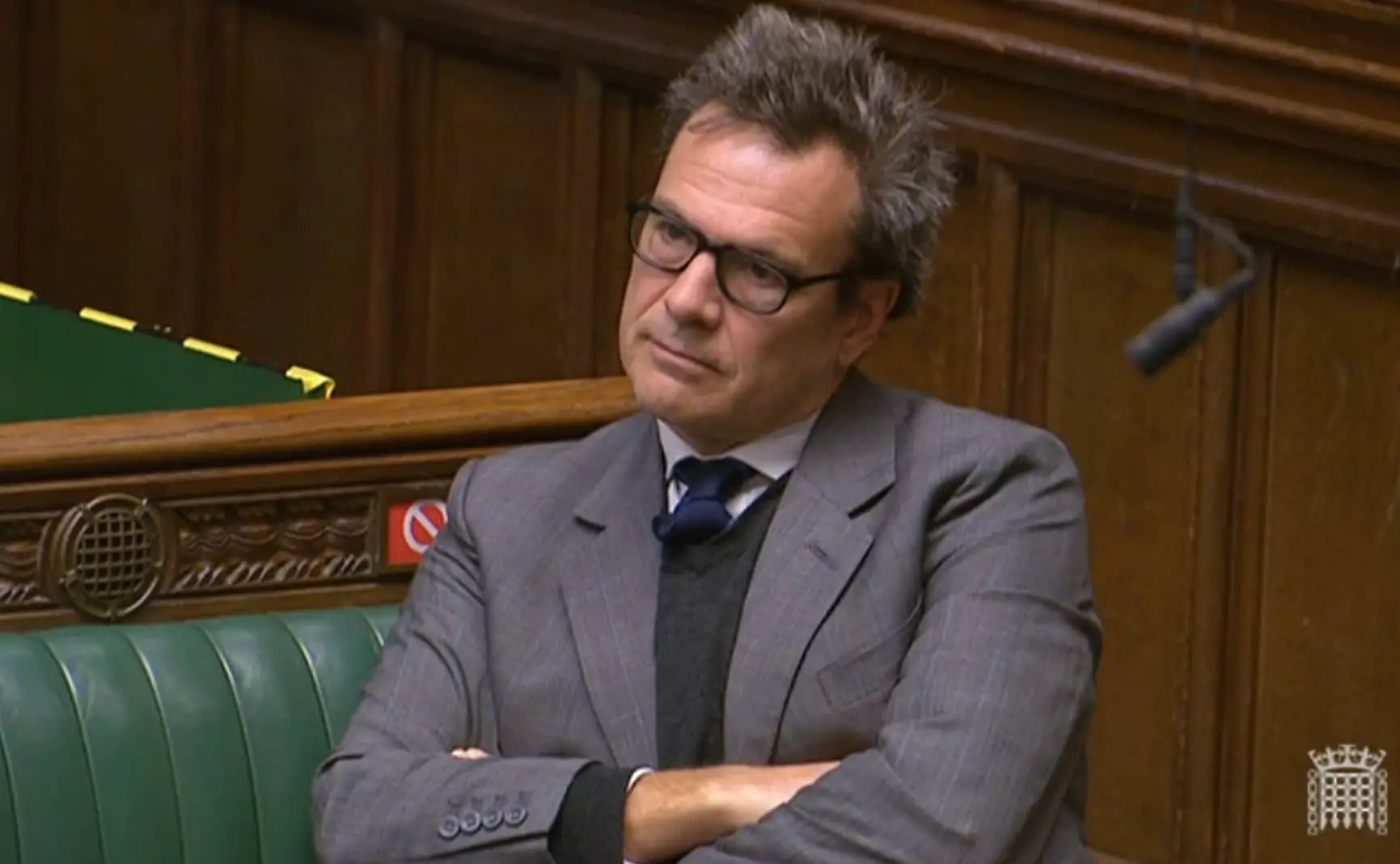Incredible as it might seem, it’s only been just over a week since Liz Truss’s Government announced the budget they labelled a ‘mini budget’.
While the Chancellor, Kwasi Kwarteng, was still on his feet, financial markets started reacting and it hasn’t stopped since then.
The country had to wait nearly a week, until Thursday, to hear the Prime Minister speak on it publicly. Her choice, to spend an hour in the morning speaking to eight local radio stations around the country. For those seeking comfort of a possible change of direction, none was forthcoming.
FT: Full-blown economic crisis?
With publications like the Financial Times asking, “Is Britain now in a full-blown economic crisis?”, there’s a need for Islanders to understand the views of the Isle of Wight’s elected representative, Conservative Bob Seely MP.
Bob Seely was an active supporter of Liz Truss, once his previous pick, Penny Mordaunt, dropped out of the party leadership race due to a lack of support.
Thumbs-up from Seely
On the day of the budget, Bob reposted – with a supportive 👍 – the Conservative Party-created graphics about abolishing the 45 per cent tax rate for those earning over £150k/year and the reduction of the basic rate of tax by a penny to 19p, starting in April 2023 and the confirmation of the policy to reduce the amount of money households and businesses pay for their energy, after the recent energy price rises.
In the week since the budget – Bob Seely’s Tweeted about an interview he did on TalkTV speaking about Russia, complained about the BBC asking why the work to the railway line on Ryde pier wasn’t scheduled for the same time the whole line was out of service for over a year during the line upgrades and another Tweet about Russia/Ukraine.
Fallout of the ‘mini budget’
As we all know, much of the country has been worried about the implications on their lives of the extreme market changes following the Conservative budget, after the pound crashed; the market for interest rates lept; mortgage companies withdrew 41 per cent of their products and the UK’s final salary pension funds fell into a ‘Doom Loop’, meaning the Bank of England needed to spend £65Bn to stop it.
A huge range of financial and market experts have been damning of the Truss / Kwarteng / Conservative budget. There’s been a small number of people being supportive of the Government claiming these extreme market changes are due to Global issues.
Most of the county’s media, across the political spectrum, has been in meltdown about the impact.
There were too many headlines to cover on this, so rather than try to list them all, here’s a selection of the FT’s headlines/excerpts from a single day – Thursday 29th – just short of a week after the Chancellor’s budget:
FT headlines from a single day
- Bank of England goes into full crisis management mode
But analysts express concern Threadneedle St appears willing to print money to finance the government - Bank of England launches £65bn move to calm markets
Central bank to spend £5bn a day for 13 days over ‘material risk to UK financial stability’ and threat to pensions - What does the bond rout mean for my pension?
Fallout from UK chancellor’s mini-Budget spreads from property to retirement - How Kwasi Kwarteng’s mini-Budget broke the UK bond market
Fire sale in gilts hammered pension funds, forcing Bank of England to launch support - UK must rapidly restore its economic credibility
Liz Truss’s government will need to reverse course on its ill-conceived mini-Budget - The jeopardy for banks in Kwarteng’s City chaos
Rate rises should help large lenders, but the speed of economic unravelling complicates everything - UK pensions: liability-driven investment is backfiring
Chancellor should act quickly to mollify markets as soon as possible
UK pension funds dump stocks and bonds
As anyone who has been paying attention to the news will know, it wasn’t just the FT writing in this way, indeed it continued on Friday, for example
The latest: UK pension funds dump stocks and bonds in rush for cash, UK pension schemes are dumping stocks and bonds to raise cash and seeking bailouts from their corporate backers as the crisis in the industry continues to rage a week after the government’s “mini” Budget.
Questions to current MP
News OnTheWight put a series of questions to the current Isle of Wight MP, Bob Seely.
Please answer each question individually, rather than via a blanket statement – the people of the Isle of Wight deserve to understand your specific thoughts.
You’ve welcomed the tax changes on Twitter – specifically the removal of the 45% income tax rate for those earning over £150k and the 1% cut in the basic tax rate to 19% from April 2023 – Do you still wholeheartedly support both of these?
As you’ve given your support to the mini-budget tax changes, I’m sure you/your office has calculated the direct benefit to Isle of Wight residents.
- How many people on the IW will benefit from the removal of the top rate of tax of 45%?
- How many pounds will the average person on the Isle of Wight save a) with the basic rate at 19p from 20p and b) the NI changes?
- What do you say to Islanders who face a significant increase in their mortgage rates following the budget?
- Are you concerned at reports that Pound/Dollar may hit/fall below parity?
- Do you oppose the view that the UK is now in a “currency crisis” as Citi have called it?
- What are your thoughts on the gilt rate rising so high, meaning the cost of borrowing for the Government has been raised?
- What’s your view on Larry Summers saying: “I think Britain will be remembered for having pursued the worst macroeconomic policies of any major country in a long time.”
- Was it right for the Government to not publish OBR research on the budget?
- What do you think the Government should do now, economically, following the budget on Friday?
- Do you still support the Chancellor?
- Do you still support the Prime Minister?
- With hindsight, do you regret having supported Liz Truss to be the leader of your party and PM?
Seely’s reply
Despite the appeal/request for him to answer the questions individually and directly, Bob Seely provided the text below to News OnTheWight at 7:30pm, Friday evening.
This is an increasingly common response from the MP – not to answer the specific question asked of him, but instead issue a statement, often bearing little or no relation to the questions that have been posed to him.
Bob Seely MP said,
“It is right that government steps in to support households and businesses facing significant rises to the cost of living. The Treasury have done this; by far the biggest commitment in the Chancellor’s economic statement was the energy price freeze, which sees the government give £31 billion in support to families and £29 billion to help businesses. This collective £50 billion [sic] total dwarfs any other spending commitments and is designed to protect families on the Island and throughout the UK from the spike in fuel prices brought about by the war in Ukraine.
“It’s important to recognise that there is no magic wand here. We have international pressures causing our country, and others, monetary pain. Government must work quickly to address immediate problems, whilst also planning for our country’s long-term future.
“The Prime Minister and Chancellor recognise this. They will set out a fiscal plan on 23rd November, detailing the government’s fiscal rules. This will include plans to ensure that debt falls as a share of GDP in the medium-term. However, to avoid recession, the government are first addressing the lack of productivity within the British economy: they intend to do this by cutting taxes.
“The tax cuts announced by the Chancellor are smaller in comparison to the energy price freeze. Lowering income tax for everyone will cost £5 billion, while other measures, such as removing the top rate and reforming IR35 cost a small fraction of the energy freeze. These are designed to encourage entrepreneurship and economic growth. Changing the stamp duty threshold costs £1.7 billion and is designed to stimulate the housing market, helping both first time buyers and older sellers. Cancelling the rises in National Insurance and corporation tax cost £19 billion each. In both cases these are designed to stimulate jobs and opportunities. They also ensure that we keep the promises made to the people of the Island and the UK.
“The government has introduced these reforms as they are prioritising the welfare of the British people over the winter months, and the nation’s financial prosperity. I believe that this is what the government is trying to do through its Growth Plan.”





